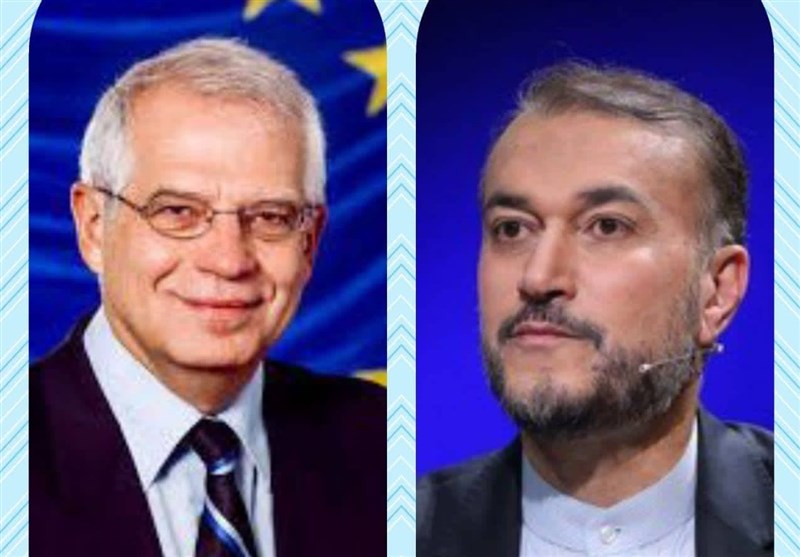Alwaght- Iranian Foreign Minister told the EU’s foreign policy chief that the Islamic Republic seeks a good agreement through the ongoing talks in the Austrian capital on the revival of the 2015 deal, but is determined not to cross its headlines.
Hossein Amir-Abdollahian’s remarks came in a phone call with Josep Borrell on Saturday evening, during which the two sides discussed the latest situation of the talks that are aimed at reviving the landmark deal, which is officially known as the Joint Comprehensive Plan of Action (JCPOA).
The United States left the deal unilaterally in 2018 and returned the sanctions that had been lifted under the accord. Washington’s allies in the deal—France, Germany, and the United Kingdom—have been toeing the sanctions line closely by ending their trade activities with Iran.
Since last year, Vienna has been hosting eight rounds of talks aimed at exploring the potential of the deal’s revival and fresh removal of the inhumane and illegal sanctions.
During his Saturday conversation with Borrell, Iran's foreign minister expressed gratitude for the efforts made by the EU's foreign policy chief and his deputy, Enrique Mora, who is also the coordinator of the JCPOA revival talks.
"It is the Islamic Republic's final decision not to cross its red lines" during the Vienna talks, Iran's foreign minister emphasized.
On Sunday, an overwhelming majority of Iranian legislators issued a statement, calling on the administration of President Ebrahim Raeisi to adhere to Iran’s red lines as the talks inched forward in Vienna.
They said the US government and its European allies had shown that they were not bound by any agreement over the past few years, so Iran was obliged to learn from the experience and set clear red lines.
The red lines, according to the lawmakers, include guarantees by the United States and the three European signatories of the JCPOA that they would not abandon a potential agreement again and seek recourse to “the snapback mechanism,” which would reinstate the UN Security Council’s sanctions against Iran. They also asserted that all sanctions imposed under “false excuses” had to be removed.
Elsewhere in his remarks, Amir-Abdollahian called it necessary for the opposite side in the Vienna talks to take the required “political decision” that could pave the way for the achievement of an agreement.
“Iran is after a good agreement, but [one that would be] within the framework of [the country’s] national interests and does not violate its red lines,” the top diplomat said.
Amir-Abdollahian and Borrell stressed that the talks have reached a sensitive and important juncture, adding that all the negotiating parties have gone the major part of the distance that they should cover.
“Some important issues remain that could be resolved if the Western side adopted a realistic approach that would lead to realization of a final agreement,” the Iranian foreign minister noted.
Borrell: Vienna talks at crucial juncture
For his part, the EU's foreign policy chief affirmed that the Vienna talks have reached a decisive point at which all the concerned parties are needed to take serious decisions.
Following the phone call, Iran's top diplomat took to Twitter, saying that he had discussed the draft of a possible agreement in Vienna with the EU's foreign policy chief in a serious manner.
He added that all participating parties in the Vienna talks are trying to reach a good deal, adding, however, that "Our red lines are made clear to western parties."



























